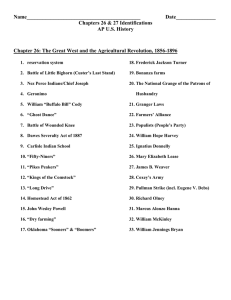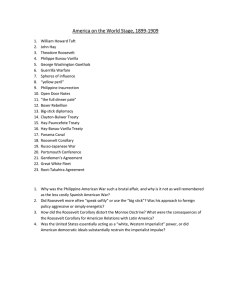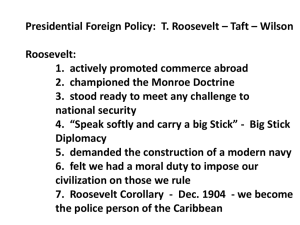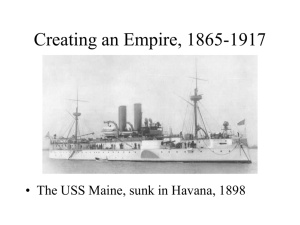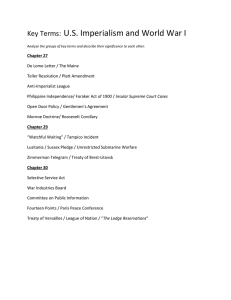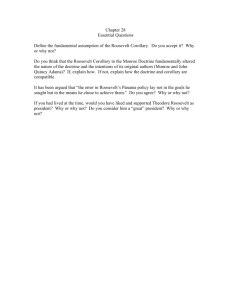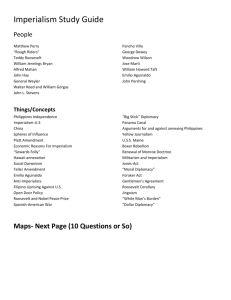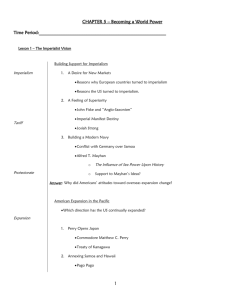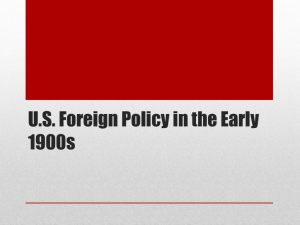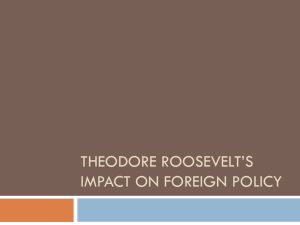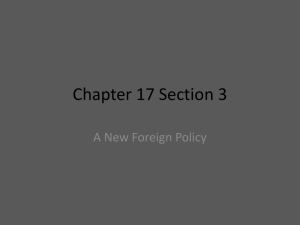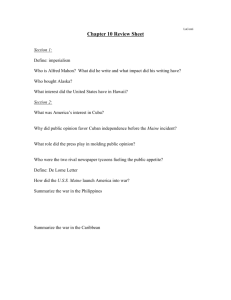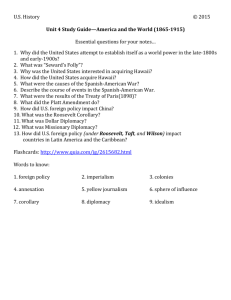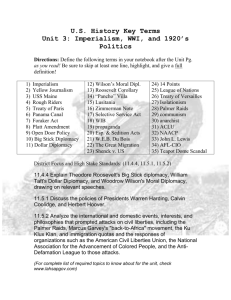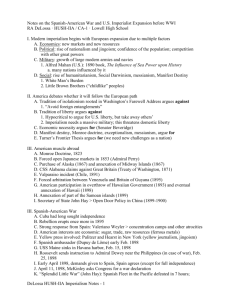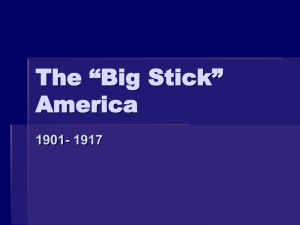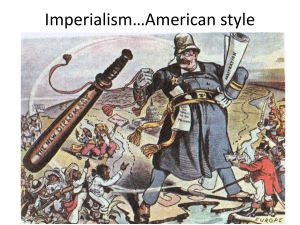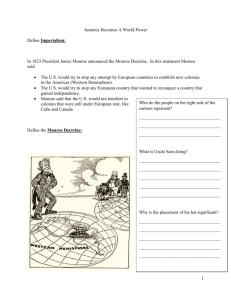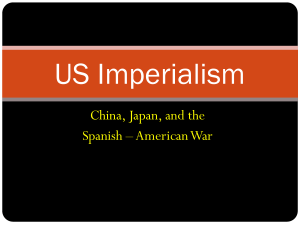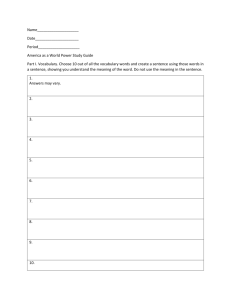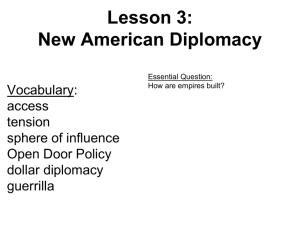Imperialism Unit Guide - Ms. Costas' History Class
advertisement
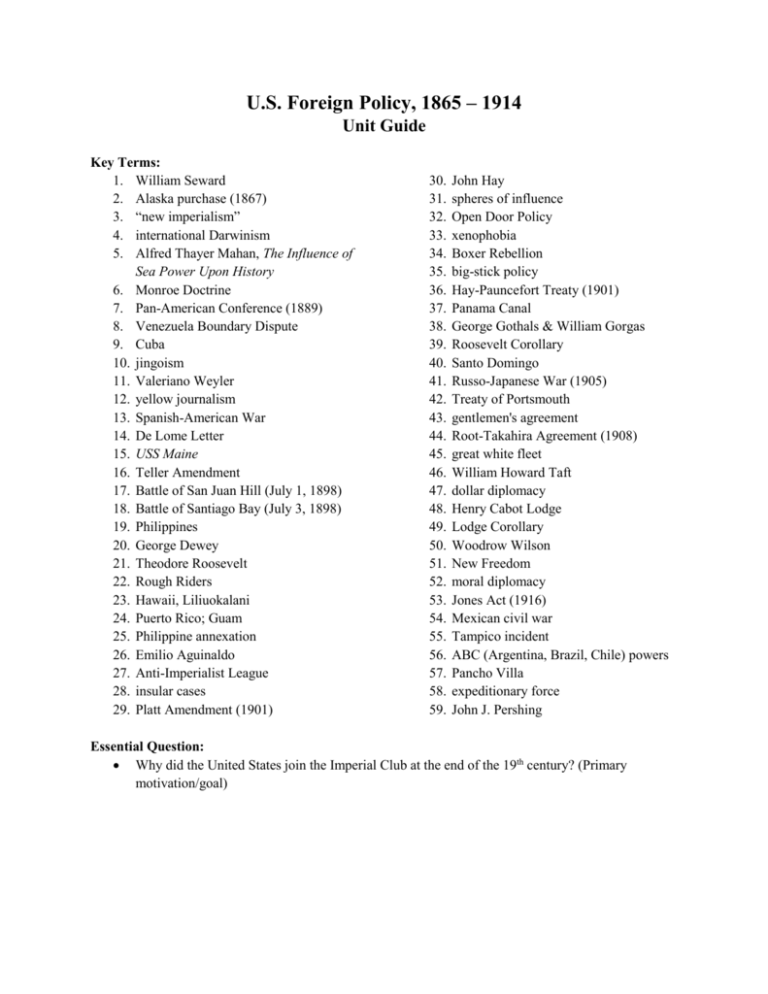
U.S. Foreign Policy, 1865 – 1914 Unit Guide Key Terms: 1. William Seward 2. Alaska purchase (1867) 3. “new imperialism” 4. international Darwinism 5. Alfred Thayer Mahan, The Influence of Sea Power Upon History 6. Monroe Doctrine 7. Pan-American Conference (1889) 8. Venezuela Boundary Dispute 9. Cuba 10. jingoism 11. Valeriano Weyler 12. yellow journalism 13. Spanish-American War 14. De Lome Letter 15. USS Maine 16. Teller Amendment 17. Battle of San Juan Hill (July 1, 1898) 18. Battle of Santiago Bay (July 3, 1898) 19. Philippines 20. George Dewey 21. Theodore Roosevelt 22. Rough Riders 23. Hawaii, Liliuokalani 24. Puerto Rico; Guam 25. Philippine annexation 26. Emilio Aguinaldo 27. Anti-Imperialist League 28. insular cases 29. Platt Amendment (1901) 30. 31. 32. 33. 34. 35. 36. 37. 38. 39. 40. 41. 42. 43. 44. 45. 46. 47. 48. 49. 50. 51. 52. 53. 54. 55. 56. 57. 58. 59. John Hay spheres of influence Open Door Policy xenophobia Boxer Rebellion big-stick policy Hay-Pauncefort Treaty (1901) Panama Canal George Gothals & William Gorgas Roosevelt Corollary Santo Domingo Russo-Japanese War (1905) Treaty of Portsmouth gentlemen's agreement Root-Takahira Agreement (1908) great white fleet William Howard Taft dollar diplomacy Henry Cabot Lodge Lodge Corollary Woodrow Wilson New Freedom moral diplomacy Jones Act (1916) Mexican civil war Tampico incident ABC (Argentina, Brazil, Chile) powers Pancho Villa expeditionary force John J. Pershing Essential Question: Why did the United States join the Imperial Club at the end of the 19th century? (Primary motivation/goal)
